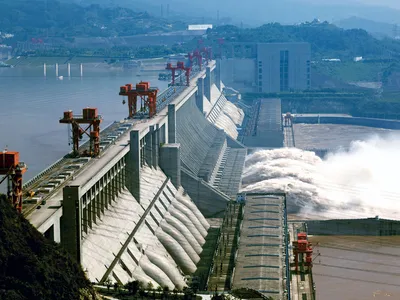🚨News : China has begun building a massive hydropower dam on the Yarlung Tsangpo river in Tibet — which becomes the Brahmaputra in India.
💸 Estimated Cost :
💰 ~$137 billion USD (over ₹11 lakh crore)
📍 Location: Medog County, Tibet (Great Bend of the river)
⚡ Project: One of the world’s largest hydroelectric dams (3x more powerful than the Three Gorges Dam)
🇮🇳 Why Should India Be Concerned?
💧 1. Water Security
➤ The Brahmaputra is vital for Assam & Arunachal Pradesh — for farming, drinking water, and energy.
➤ The dam may allow China to control river flow during dry seasons, affecting Indian water availability.
🌧️ 2. But China Can’t Control Everything!
➤ 80% of Brahmaputra’s water comes during the monsoon (Jun–Sep).
➤ Due to steep terrain and extreme rain, China can’t block this floodwater — it would overwhelm or damage the dam.
➤ So during monsoon, China’s control is limited — nature still rules.
⚠️ 3. Flood & Disaster Risk
➤The area is earthquake-prone. A dam failure (due to quake, landslide, or glacier burst) could trigger massive floods in Assam & Arunachal.
➤ Past example: 1975 Banqiao Dam collapse in China killed thousands.
🐟 4. Environmental Impact
🌿 Reduced sediment harms soil fertility in Assam.
🐬 Affects biodiversity (e.g. fish, dolphins, Kaziranga wetlands).
👩🌾 Hits livelihoods of farmers & fishing communities downstream.
🧭 5. Strategic Pressure on India
➤ China, being upstream, has leverage.
➤ It can use water as a tool in political or military tensions.
➤ India has no binding water treaty with China — only limited data-sharing agreements (not always followed).
🇮🇳 How Is India Responding?
📣 Diplomatic protests & calls for transparency.
🚧 Planning a mega dam in Arunachal Pradesh (Siang project) as a buffer.
⚠️ Strengthening flood warning systems & disaster readiness.
🤝 Engaging with Bangladesh, Nepal & Bhutan for regional water coordination.



